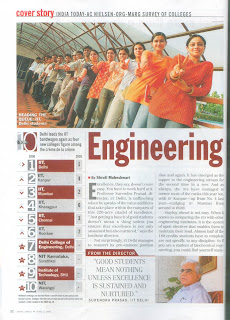Think about it.
Sonic Solutions DLA
On every Machine reboot, I would get a warning message saying:
this driver is blocked due to compatibility issues
sonic solutions
dlapublisher: sonic solutions
------------------------------------------------------------------------------------------------Open Up 'My Computer' and delete these files and folders if they exist.
C:\Program Files\Roxio\Drag-to-disc\
C:\Windows\DLA.EXE'
C:\Windows\System32\DLA\C:\Windows\System32\DLAAPI_W.DLL
C:\Windows\System32\drivers\DLACDBHM.SYS
C:\Windows\System32\drivers\DLARTL_M.SYS
Now, reboot. The problem should vanish.
Microsoft Office Word, Crashes on exit
This happened overnight. I didnt install anything new, no new drivers, no new softwares, no uninstalls, but yet one fine day My Word crashes whenever I close it. Heres what it says: "Microsoft Office Word has stopped working". Additional information:
Problem signature:
Problem Event Name: APPCRASH
Application Name: WINWORD.EXE
Application Version: 12.0.4518.1014
Application Timestamp: 45428028
Fault Module Name: mso.dll
Fault Module Version: 12.0.4518.1014
Fault Module Timestamp: 4542867b
Exception Code: c0000005
Exception Offset: 0003977b
OS Version: 6.0.6000.2.0.0.768.2
Locale ID: 1033Additional information about the problem:
LCID: 1033
Brand: Office12Crash
skulcid: 1033
Solution:
If you want to work on Word, goto command prompt, and start winword.exe with the /a switch. It will work, but without addons. Its a relief, coz I can finally get my work done without bothering to search for the Office installation DVD, repairing office or uninstalling and reinstalling it...
Goto start, type cmd and press enter.
Navigate to C:\Program Files\Microsoft Office\Office12
Type in "winword.exe /a" without the quotes and press enter. And now, it works!
And while ur at it, goto the office menu (top left), word options, add-ins and disable the culprit after you've identified it (no choice but to try all of them out one by one, unless you're sure).
Note that this solution works only if the fault module (in the crash message) is "mso.dll". In other common cases, the fault module starts with "hp... .dll". In such cases, your HP printer driver is causing problems and you need to uninstall it to get word to work.
------------------------------------------------------------------------------------------------
The Hibernate Option in Windows Vista is Gone!
This happened to me when I tried to clean up my C drive (system drive).
Right clicking the drive > Properties > disk cleanup
Here, I chose to remove everything I could, to make some space. And accidentally also removed the Hibernation file from the list (which was consuming > 4 GB of space at the time).
So now I find that the hibernate option has gone missing. I cant even enable it. It isnt there in the power options, neither is it there anywhere else. I was forced to make-do with the sleep option. But the solution i quite simple:
Get into the command prompt, open it in administrative mode (by right clicking the icon in the start menu and selecting run as administrator), and type in:
powercfg /hibernate on
Reboot. And voila, hibernate is back in the "Microsoft Power Options" and the shutdown menu.
===================================================================
I know institutionalization is bad, but in some cases its just about optimization. In the enterprise, professionals would rather continue with the inefficiencies of a system they know how to use, than invest time (and money) in learning a new and better systems (including open source counterparts) with hopes of improved performance.
The day when Open Source software institutionalizes the users as much, or more, than Microsoft has; will be the day when we will get to see true competition at its best...
Till then, its make-do time...


























